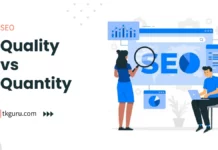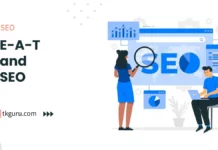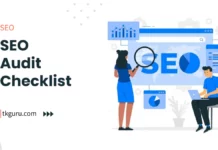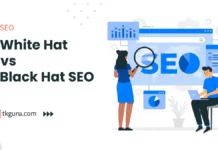Advertisements
Ratings
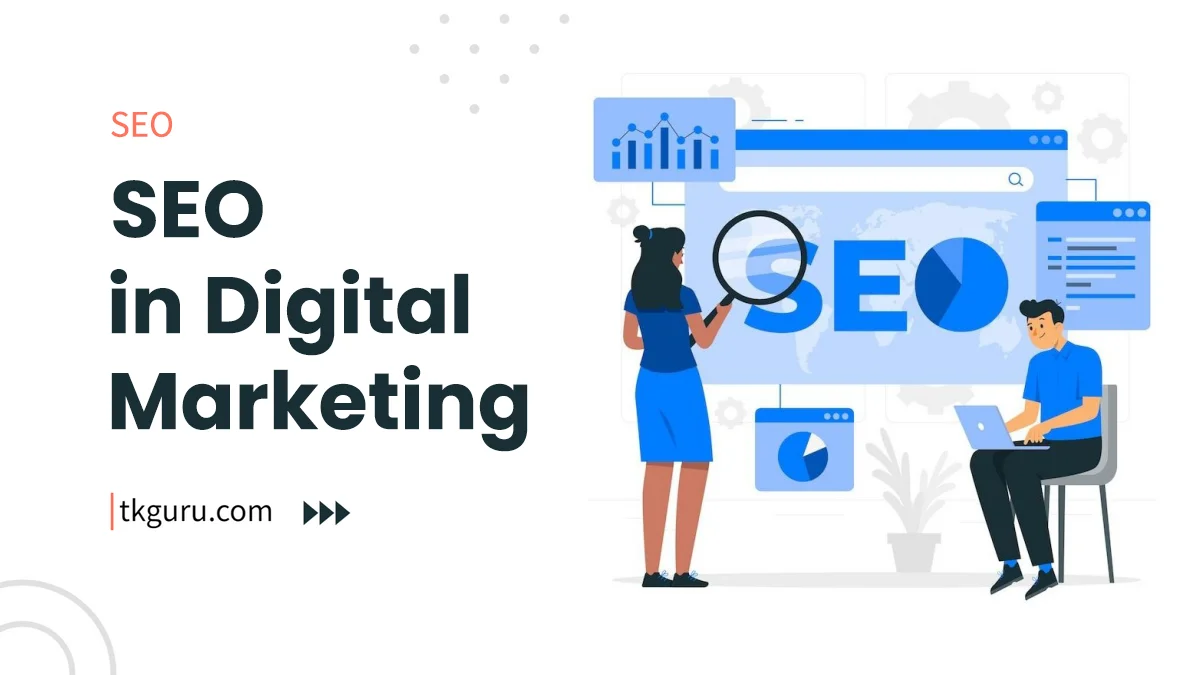
SEO in Digital Marketing – In today’s digital age, where businesses are vying for online visibility and consumers are relying on the internet to make purchasing decisions, the realm of digital marketing has become a paramount avenue for success.
At the heart of effective digital marketing strategies lies a potent tool known as SEO, or Search Engine Optimization.
This comprehensive guide unveils the significance of SEO in the world of digital marketing, exploring its vital role in enhancing online presence, driving organic traffic, and fostering business growth.
Contents
1. Understanding SEO
1.1 What is SEO?
In its essence, SEO is a multifaceted practice aimed at optimizing websites to rank higher in search engine results.
When a user types a query into a search engine like Google, the results that appear are not randomly generated; they are carefully curated to match the user’s intent.
SEO, therefore, plays a pivotal role in ensuring that your website surfaces prominently when users search for relevant terms.
1.2 Components of SEO
SEO can be divided into three fundamental components, each with a unique impact on your website’s search engine visibility:
- On-Page Optimization: This involves optimizing individual web pages with strategic keyword placement, meta tags, and high-quality content that aligns with user intent.
- Off-Page Optimization: Beyond your website’s confines, off-page SEO focuses on building your site’s credibility through acquiring quality backlinks from reputable sources.
- Technical SEO: This aspect revolves around ensuring that your website’s technical structure is optimized for search engines, including factors like site speed, mobile-friendliness, and schema markup.
2. SEO and Digital Marketing Synergy
2.1 Alignment with Business Goals
In the broader context of digital marketing, SEO acts as a robust linchpin that aligns with various business goals.
Whether your objective is to increase brand awareness, drive sales, or generate leads, SEO plays a critical role in achieving these aims.
By securing higher search rankings, you position your brand in the line of sight of potential customers actively seeking your products or services.
2.2 Cost-Effectiveness
One of the most enticing aspects of SEO is its cost-effectiveness in comparison to traditional paid advertising.
While paid campaigns offer immediate visibility, they require ongoing investment to maintain.
In contrast, SEO investments can yield sustainable results that continue to drive traffic and conversions over time, without the need for continuous financial outlay.
3. Organic Search Traffic
3.1 The Power of Organic Traffic
Organic search traffic, stemming from users who find your website through non-paid search engine results, holds tremendous value.
These visitors come with a genuine intent, as they actively searched for keywords related to your industry, products, or services.
This targeted traffic is more likely to engage with your content, stay longer on your website, and ultimately convert into customers.
3.2 Building Trust and Credibility
Securing a prominent spot in search engine results not only drives traffic but also establishes a sense of trust and credibility.
Users often associate top-ranking websites with authority and reliability, making them more likely to explore your content, products, or services.
Therefore, achieving high search rankings isn’t just about visibility; it’s about building a positive perception among your target audience.
4. User Experience and SEO
4.1 Page Speed and Mobile-Friendliness
User experience (UX) and SEO are intertwined in a symbiotic relationship. A seamless user experience, characterized by factors like fast-loading pages and mobile-friendliness, not only enhances engagement but also impacts search engine rankings.
Google’s algorithms prioritize websites that offer a smooth browsing experience across devices, reflecting the modern user’s expectations.
4.2 User-Centric Content
Quality content isn’t just essential for engaging users; it’s a fundamental component of SEO.
Search engines prioritize content that caters to user intent, answering their queries comprehensively.
By crafting user-centric content that addresses pain points and provides solutions, you’re not only satisfying your audience but also satisfying search engine algorithms.
5. Niche Targeting and Keyword Strategy
5.1 Targeting Relevant Keywords
Keyword targeting lies at the core of effective SEO. By conducting thorough keyword research, you can identify the specific terms and phrases that your target audience uses when searching for information related to your industry.
Incorporating these keywords into your content allows you to align with user intent and improve your chances of appearing in relevant search results.
5.2 Long-Tail Keywords
Beyond broad keywords, long-tail keywords are a treasure trove of opportunity. These longer, more specific phrases may have lower search volumes, but they also come with less competition.
Users using long-tail keywords are often closer to making a purchasing decision, making these keywords valuable for driving conversions.
6. Competitive Advantage
6.1 Outperforming Competitors
In the competitive landscape of digital marketing, SEO can be the differentiator that propels your business ahead of competitors.
Securing top rankings in search results positions your brand as a leader in the industry, increasing the likelihood of users clicking through to your website over competing options.
6.2 Evolving Strategies
Staying ahead in the digital arena requires agility and adaptability. The world of SEO is no exception, with algorithms and trends continually evolving.
By staying updated with the latest SEO practices and algorithm shifts, you position yourself to adjust your strategies and maintain a competitive edge.
7. Measuring SEO Success
7.1 Key Performance Indicators (KPIs)
Measuring the success of your SEO efforts requires tracking specific Key Performance Indicators (KPIs).
These metrics provide insights into the effectiveness of your strategies and allow you to make data-driven decisions.
7.2 ROI and Conversions
The ultimate measure of SEO success lies in Return on Investment (ROI) and conversions.
When your SEO strategies effectively attract and engage the right audience, the result is increased traffic that translates into leads, sales, or desired actions.
8. Local SEO and Business Visibility
8.1 Local Search Importance
For businesses targeting specific geographic areas, local SEO is a game-changer. It ensures that your business appears in local search results, connecting you with potential customers in your vicinity.
8.2 Google My Business
An integral part of local SEO is optimizing your Google My Business (GMB) listing. This ensures accurate business information, including your location, hours of operation, and customer reviews, is readily available to local users.
Conclusion
In the intricate tapestry of digital marketing, SEO emerges as a foundational thread that weaves together visibility, credibility, and success.
With the power to align with business goals, drive targeted organic traffic, and outperform competitors, SEO is a dynamic force that transcends marketing trends.
As you navigate the digital landscape, remember that investing in SEO is investing in the future of your business—a future characterized by visibility, engagement, and sustainable growth.
SEO in Digital Marketing FAQs
What is SEO in Digital Marketing?
SEO, or Search Engine Optimization, is a fundamental component of digital marketing.
It involves optimizing various aspects of a website or online content to improve its visibility in search engine results.
The primary goal of SEO is to attract organic (non-paid) traffic to a website by aligning with search engine algorithms and providing valuable content that matches user intent.
How does SEO benefit a digital marketing strategy?
SEO offers several benefits to a digital marketing strategy:
- Increased Visibility: Effective SEO efforts can lead to higher rankings in search results, exposing your website to a larger audience.
- Targeted Traffic: SEO targets users actively searching for specific products, services, or information, resulting in more relevant and engaged visitors.
- Cost-Effective: Organic traffic acquired through SEO is free, reducing the need for continuous paid advertising.
- Trust and Credibility: Higher search rankings often imply credibility and trustworthiness to users, enhancing your brand's reputation.
- Long-Term Results: Well-executed SEO can lead to sustained visibility and traffic over time, unlike paid advertising that stops when the budget runs out.
What are the main components of SEO in digital marketing?
The main components of SEO include:
- On-Page SEO: Optimizing individual web pages for relevant keywords, high-quality content, proper meta tags, and other on-page factors.
- Off-Page SEO: Building backlinks and online presence through activities like guest blogging, social media engagement, and influencer partnerships.
- Technical SEO: Ensuring proper website structure, mobile-friendliness, page speed, and crawlability for search engine bots.
- Keyword Research: Identifying and targeting keywords that align with user search queries and have reasonable search volume.
- Content Strategy: Creating valuable and relevant content that addresses user needs and incorporates targeted keywords.
How does SEO interact with other digital marketing channels?
SEO interacts with other digital marketing channels in several ways:
- Content Marketing: SEO relies on high-quality content, and content marketing creates and promotes that content to attract and engage the audience.
- Social Media: Social media shares and engagement can indirectly influence SEO by increasing brand visibility and potentially driving more backlinks.
- Paid Advertising: While separate from SEO, paid advertising can complement organic efforts by targeting specific keywords and audiences.
- Email Marketing: High-quality content optimized for SEO can be shared through email campaigns, driving more traffic and engagement.
- Analytics: Data from SEO efforts can inform overall digital marketing strategies, helping marketers understand user behavior and preferences.
Why is continuous monitoring and adaptation important in SEO within digital marketing?
Search engine algorithms, user behaviors, and industry trends are constantly evolving.
Continuous monitoring and adaptation allow marketers to stay ahead of these changes. By analyzing performance metrics, identifying areas for improvement, and adjusting strategies accordingly, businesses can maintain or improve their search rankings, traffic, and overall digital marketing success.
| Web Hosting | Website |
| WordPress | Google Adsense |
| SEO | Affiliate Marketing |
| Blogging | YouTube |
Recent Posts
- Top 6 SEO Companies in Ahmedabad 2024: Unlock Success with the Top SEO Companies in Ahmedabad
- Top 5 SEO Companies in Kanpur 2024: Discover the Top-Rated SEO Companies in Kanpur
- Quality vs Quantity: The Importance of High-Quality Backlinks
- E-A-T and SEO: Expertise, Authoritativeness, Trustworthiness
Related Tags
types of seo in digital marketing, importance of seo in business, why seo is important for your website, what is seo and its importance, seo marketing, what is seo in digital marketing, features of seo in digital marketing, why seo is important for small business



